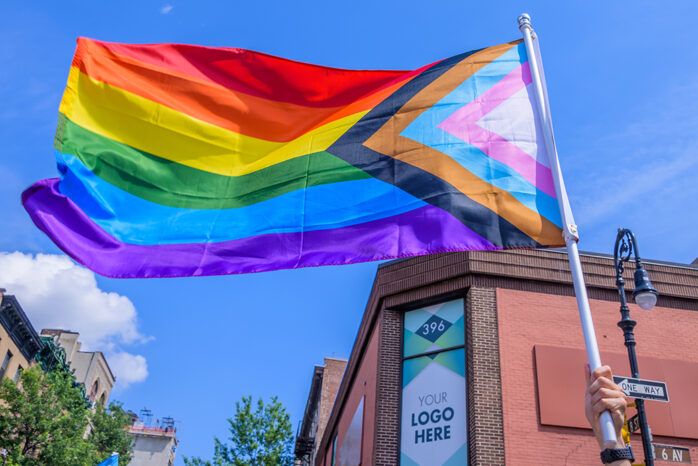This post was developed via a partnership with BetterHelp.
If you’ve ever had to have a conversation about any controversial subject with someone on the complete opposite side to you, you know how stressful and difficult it can be. Many topics, such as environmental impact, religion, politics, and mental health, can cause conflicts and immense emotional toll.
Coming out is another topic that isn’t always accepted or understood. If you are part of the LGBTQ community and want to tell those in your life that you know aren’t going to be accepting, you need to have a plan of action. Here is a complete guide on how to come out to someone who doesn’t support the LGBTQ community.
Leading Up to It

Before you come out to the person in your life who is against the LGBTQ community, you will need to prepare yourself. Some people don’t support the community due to religious beliefs or simply being uneducated.
Many resources exist for parents and family members of LGBTQ adults and youth. If you are part of a church or religious organization, see if there is a local LGBTQ group or pastor who may be willing to speak to your family. You can also find success stories and scripture that support your identity and can challenge your family to think outside of what they’ve been taught.
If your family is not religious, you can still find resources to back yourself up. You will also want to prepare yourself for any reaction. Even if you come prepared and try your best, your loved one may still not react how you were hoping they would.
Some ways to come out that are safe include:
- Coming out over letter
- Video chat
- Coming out during a family therapy session
- Meeting in a public location
If you believe there may be a chance of violence or aggression during the conversation, consider whether you even want to have it. Sometimes, choosing not to give a vulnerable part of yourself to people who will hurt you is the healthier option. Consider having a friend or accepting family members at your side when you do come out.
During It

So, it has come time for you to come out to someone who doesn’t accept your identity. Remember to stay firm in your stance, bring resources, and don’t allow the person to bring you to a place or spot that makes you uncomfortable or unsafe.
Here are some common ways to come out to someone:
- “I know you have previously shared a dislike for the LGBTQ community, but I wanted you to know that I am a part of it.”
- “I am gay, and this is not something that I take lightly. I have brought some resources from people like you who may struggle with this, and I hope you can keep an open mind.”
- “I have learned that I am bisexual, and I am currently dating a woman. I hope you can open your minds and hearts to her and treat her with the same kindness you have given to my boyfriends in the past.”
Refrain from getting angry or calling names if the person makes rude remarks. Try to come at the situation from a helpful perspective and continue to show empathy.
If the person reacts positively, reinforce this by being overly thankful for their support. It’s not your job to control someone else’s behavior, but you also want to avoid an unsafe situation.
What To Do if They Disown You?

If the person in your life has decided to take the low road and decides to disown you or cut you out of their life, that is a decision they’ve made, and it’s best to respect it.
You can’t force someone to understand you or try to be there for you. True kindness, compassion, and love will make someone reconsider their ways if it actively hurts the person they care about. The best way to see what happens next is to give them time and continue to be themselves.
If continuing to try to have a relationship with them will be hurtful to you, try to avoid it. We’ve added some tips at the end of this article for how to deal with this type of response. Remember overall that it isn’t your fault and that you’ve done the best you can.
What To Do if They Are Willing to Work on Their Opinion
If the response from the person is positive, congratulations! Even a small commitment by them to consider looking through the resources you offered or talking to someone LGBTQ from your church can make the process go so much faster and easier.
Many people just need the time and space to learn about something they don’t understand. They may come around to either side of the coin at some point in the future, so you’ll need to stay firm in your boundaries and allow them to make their own choices.
Continue to correct them if they use your incorrect name or pronouns or continue to push heterosexuality on you. Let them know when they’re being offensive or rude, and continue to tell them that your identity isn’t going to change and that you need them to try to accept it.
How to Help Yourself if the Response Isn’t What You Hoped

For a response that wasn’t how you hoped, you may be feeling hopeless, depressed, anxious, stressed, or angry. These are all normal responses to being rejected, and it’s okay to feel that way. You may even feel grief if you’ve lost someone you care about due to your identity.
Some of the best options to help yourself get through this include:
- Seeing a licensed LGBT therapist
- Speaking to a friend or family member that does accept you
- Finding a community of other LGBTQ people in your city
- If you are religious, finding or starting a religious LGBTQ group
- If you are religious, finding a church or religious organization that accepts your identity
All you can do is continue to be yourself and continue to let people in your life who love you. Your choice to come out was brave, and we know you are doing your best. You’re not alone, and many people lose access to friends, family, and community after coming out. Now is the best time to find your own community of people who love and accept you.
If you want to learn about more “how-to” topics, check out this advice column.
The post How to Come Out to Someone Who Doesn’t Support the LGBTQ Community appeared first on FotoLog.
from FotoLog https://ift.tt/AXRfIdr
via IFTTT



0 Comments